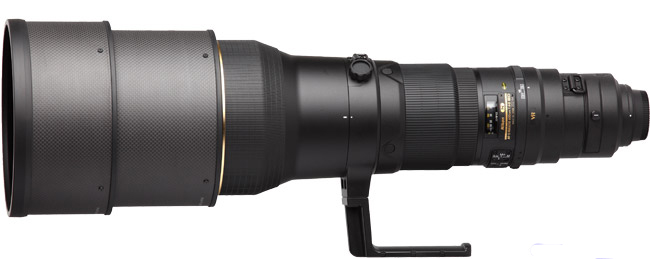600mm has been a hallowed focal range for photographers. The stunning wildlife images that have been put out there by the likes of Marsel Van Oosten, Art Wolfe, Joel Sartore and Charles Glatzer. There are a number of factors when it comes to getting out to 600mm focal range. The options are limited.
Option 1: Get a 300mm f/2.8 and add a 2x teleconverter vs. Option 2: Go with a 600mm f/4

 VS
VS 
IMAGE QUALITY
The use of the teleconverter on the 300mm f/2.8 puts glass in front of your focusing elements and makes the image less crisp than with a bare lens which would restrict you to 300mm, b) the addition of the 2x teleconverter drops your wide open aperture by two full stops to f/5.6 which ends up making your shutterspeed drop accordingly. Teleconverters are helpful tools, but the con of using them is the fact that they lessen the shutterspeed by affecting the wide-open aperture of the lens. A 1.4x teleconverter usually affects the lens by reducing the fully open aperture by 1 full stop. The 1.7x teleconverter (Nikon) reduces the fully open aperture by one and a half stops. And the 2x teleconverter reduces the fully open aperture by 2 full stops The rule of thumb is "in order to regain a sharp image, you have to drop the aperture 1 full stop." This rule of thumb would make that f/5.6 an f/8 thereby even dropping your shutterspeed even more. The 600mm f/4 has an impressive IQ bare bones. Most bird photographers couple a 1.4x teleconverter with it.
WEIGHT
The positive point of the 300mm f/2.8 + 2x TC is the fact that it is than the 600mm f/4. At 6.3 pounds versus a whopping 11.2 pounds for the 600mm, it's slightly more than half the weight. This allows it to become a handholdable 600mm f/5.6 at wide-open aperture. 11.2 pounds doesn't seem like much, but the 600mm f/4 ends up weighing heavily on one's arm if one has to handhold it and most can only hold it with one hand for maybe about 30 seconds at a time. If you don't believe me, go hold a 10 pound weight arm extended and see if you can hold it for more than 30 seconds upright. The 600mm will require a tripod (a Gitzo Series 3 or 5 with a gimbal head) and head to support the full weight in order to utilize it to its best advantage.
COST TO PURCHASE
Cost is also a factor. At $5,899.99, the 300mm f/2.8 + $499.99 US MSRP for the TC-20EIII, it is a cheaper method of gaining 600mm. The 600mm f/4 is going to hit your pocketbook for a whopping $10,799.99.
COST TO RENT
Renting often involves renting lenses from a reputable place like HireLenses.com in the UK. Or LensRentals.com in the United States. Often times, they do not have the latest gear. LensRentals in the States often updates their lens collections often as the new lenses come out but other rental companies in other countries will not, so you may be using the previous generation of gear that may involve other techniques such as manual focusing if you put a teleconverter on. Or you may not get the focal range that you want. HireLenses in the UK are using previous generation 300mm and 600mm lenses. You can be certain of paying somewhere in the neighbourhood of £231 for the 600mm + a deposit for 7 days usage+VAT, or
£183 for the 300mm plus £27 for rental of the 300mm +2x TC (these figures were based on using the Nikon lenses.
Hopefully, this answers a lot of questions with regards to the pros and cons of either utilizing a 300mm+2x extender, vs a 600mm f/4.






 VS
VS 







